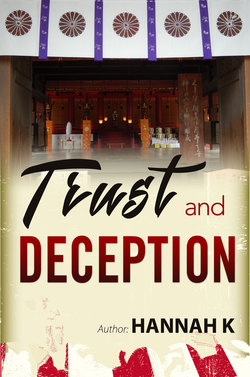Читать книгу Trust and Deception - Hannah K - Страница 3
На сайте Литреса книга снята с продажи.
To Readers:
ОглавлениеGenerally, the Japanese term, Tenno, is commonly translated into “the Emperor” in most of the publication in English. However, there is a clear distinction between Tenno and the Emperor. I have decided to call Tenno Tenno and Tenno, who wanted to make the empire, the Emperor. The first Emperor was the Emperor Tenji. The Emperor Tenji wanted to be an emperor like that of Qin Empire. There were only few Tenno who wanted to be the emperors in Japanese history. The second virtual Emperor was the Emperor Meiji, the third the Emperor Taisho, the fourth the Emperor Showa. These three modern Emperors did not have intention to build an Empire. The lawmakers of those days wanted to unite Japan as an Empire. After the Pacific War, the Emperor Showa, Hirohito, came to be Showa Tenno. In this book, after the Pacific War, I call him Showa Tenno.
Another thing I would like to add is that even the current Constitution of Japan call the Tenno Household the Imperial Household. However, Japan is not an empire anymore. Therefore, I think the imperial household should be called Tenno Household or Royal Household. Furthermore, especially, before the Pacific War the Military Regime plotted every action on their own so, I called Japanese Imperial Military Japanese Empire Military. I use the term Empire instead of Imperial when I wrote about the Military Regime.
Jitoh Tenno (The period of reign, 690-697) started to call all kings (Oh-Kimi) Tenno, so all Oh-Kimi are called Tenno in Japanese history. Japanese does not have any singular or plural forms like English. Kogo is translated into the Empress. Jingu Kogo was the first Kogo in the oral history of Japanese mythology. Only there are few Kogo’s stories in this book.
In terms of Empire, if you take a look at history books, most of the empires are called dynasties. However, I called the dynasties empires for the convenience of reader’s understanding. Empires are organized by one absolute ruler (almost a dictator) and his bureaucrats. Traditionally, Japan was composed of traditional Tribal-Clan system, which is completely different from that of Empires. So, in this book, all the dynasties which were virtually empires are called “the empire.”
There is a strange pronunciation system called On-bin, a kind of euphonic change, owing to the Kanji characters. So, I dare not use On-bin in most of the terminology. For example, the term “Kami” can also be pronounced “Shin,” or “Jin.” I take the pronunciation “Kami.” In case of Jinja, I call them “Kami-Shrine.” “Hachiman Jinja” are named “Hachiman-Kami-Shrine.”
I sincerely hope these alternations would help you to understand Japan better.
